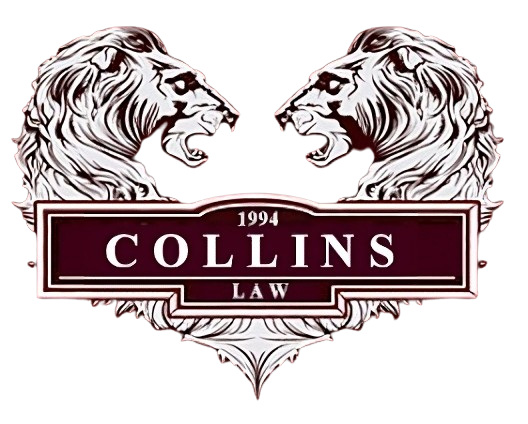What to Do When You’re Facing Your First Criminal Charge

Table of Contents
- Understanding the Gravity of a First Criminal Charge
- Your Rights After Being Charged
- The Importance of Legal Representation
- Building a First Offense Defense Strategy
- What to Expect in the Criminal Court Process
- How to Prepare for Your Day in Court
- Protecting Your Future After a Criminal Charge
- Frequently Asked Questions
Key Takeaways
- A first criminal charge can be intimidating, but knowing your rights and taking swift action can help.
- Hiring the right attorney is critical for building a strong first offense defense.
- Proper court preparation and legal strategy can significantly influence your outcome.
- Your future is not defined by one mistake—there are steps to rebuild your life after a criminal charge.
- For experienced legal guidance, contact Collins & Associates at
812-475-1234.
Understanding the Gravity of a First Criminal Charge
Facing your first criminal charge is not just a legal issue—it’s a life-changing moment. Whether the allegation is a misdemeanor or a felony, the emotional and mental toll can be intense. You may feel overwhelmed, uncertain, or even paralyzed by fear. The truth is, what you do in these early moments will significantly affect how your case unfolds.
The good news? You’re not alone. At
Collins & Associates, we understand how daunting this process can be. Our goal is to help you take control of your situation and approach each step with clarity and purpose.
Your Rights After Being Charged
The moment you're charged, your rights become your most powerful defense tool. Here are the fundamental rights you should immediately recognize and assert:
- Right to remain silent: Anything you say can and will be used against you.
- Right to an attorney: You don’t have to navigate this alone.
- Right to due process: You are presumed innocent until proven guilty.
Do not speak to law enforcement or investigators without a lawyer present. Even casual conversations can be misinterpreted and used to build a case against you.
The Importance of Legal Representation
Hiring a lawyer isn’t just a formality—it’s your first and most crucial line of defense. A seasoned criminal defense attorney will:
- Evaluate the charges against you
- Identify legal flaws in the prosecution’s case
- Negotiate for reduced charges or even dismissal
- Guide you through each phase of the legal process
At Collins & Associates, we specialize in representing individuals facing their first criminal charge. We take the time to listen, explain your options, and advocate fiercely for your rights.
Building a First Offense Defense Strategy
One of the benefits of facing a first criminal charge is the opportunity to craft a first offense defense strategy tailored to your circumstances. Courts are often more lenient with first-time offenders—especially when they see genuine remorse and a commitment to rehabilitation.
A strong first offense defense may include:
- Diversion programs: Many jurisdictions offer programs that can lead to dismissed charges upon completion.
- Character references: Statements from employers, teachers, or community leaders can positively impact your case.
- Counseling or education programs: Voluntarily enrolling in treatment or educational programs demonstrates accountability.
- Plea negotiations: In some cases, pleading to a lesser offense can minimize long-term damage.
Every defense is different. The key is to tailor the strategy to your life, your goals, and your future.
What to Expect in the Criminal Court Process
Once you’ve been charged, here’s a general overview of what the criminal process might look like:
- Arraignment: This is your first court appearance, where you’ll hear the charges and enter a plea.
- Pre-trial hearings: These may involve motions to dismiss evidence, plea negotiations, or bail adjustments.
- Trial: If your case proceeds to trial, the prosecution will present its case, and your defense attorney will argue on your behalf.
- Sentencing (if convicted): The judge will impose a sentence, which may include fines, probation, community service, or incarceration.
Navigating court alone is risky. Missteps here can lead to harsher penalties. That’s why having an experienced lawyer from Collins & Associates is essential.
How to Prepare for Your Day in Court
Preparation can make or break your case. Here are some practical tips to help you feel ready:
- Dress appropriately: Appear respectful and professional.
- Arrive early: Punctuality shows the court that you take the matter seriously.
- Know your story: Be clear on what happened, but never speak in court unless advised by your attorney.
- Bring documentation: Gather letters of support, records of community service, or proof of completed programs.
- Stay calm and respectful: Emotional outbursts can damage your credibility.
Your legal team at Collins & Associates will ensure you’re fully prepared and know what to expect every step of the way.
Protecting Your Future After a Criminal Charge
Even if you're convicted, life doesn’t end with a criminal charge. There are ways to repair your reputation, protect your employment opportunities, and rebuild trust within your community.
Here’s how:
- Record expungement: Depending on your state, you may be eligible to have your record sealed or erased after a certain period.
- Follow all court orders: Completing probation, paying fines, or fulfilling community service requirements on time can positively reflect on your future legal standing.
- Focus on rehabilitation: Use this experience as a catalyst for personal growth—therapy, counseling, and education go a long way.
Your
first criminal charge doesn’t have to define you. With the right support and legal representation, it can become a turning point toward a better future.
Let’s Take the First Step Together
If you're facing your first criminal charge, don’t try to navigate the legal system on your own. We’re here to guide you every step of the way, with the experience, compassion, and legal knowledge you need to fight for your future.
Contact Collins & Associates today at 812-475-1234 or visit us. You can also reach out through our secure contact form at rich@collins-law.com.
Together, we can help you take control, build your defense, and move forward with confidence.
Frequently Asked Questions
What should I do immediately after being arrested for the first time?
Stay silent and request an attorney. Avoid discussing the case with anyone until you speak with legal counsel.
Will a first offense always result in jail time?
Not necessarily. Many first-time offenders qualify for diversion programs, probation, or reduced sentencing.
Can I get a first criminal charge removed from my record?
Yes, in many cases. Expungement laws vary by state, and your attorney can guide you through the process.
What is the benefit of hiring a private attorney vs. a public defender?
What is the benefit of hiring a private attorney vs. a public defender?
How soon should I contact an attorney after being charged?
Immediately. The sooner you involve an attorney, the better your chances of building a strong first offense defense.
This is a subtitle for your new post





